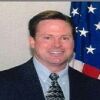“Those who cannot remember the past are condemned to repeat it.” — George Santayana
I was on the FBI Los Angeles SWAT team in 1992 when the LA riots broke out. During the riots, our job was to ride with the fire department and set up a perimeter around the firefighters to keep them from getting sniped so they could fight fires. We received some outstanding riot training from LAPD Metro. It was incredibly worthwhile work.
Watching riots that have occurred since 1992 brings back unpleasant memories of events in Los Angeles nearly 30 years ago – the similarities are a brutal reminder of how we continue to make the same mistakes.
I believe there are three primary factors – failure points – that allow riots to occur and continue.
1. Failure of law enforcement to adequately respond to the media
The media thrives on creating turmoil and conflict. Rather than ignoring the media, law enforcement executives have to use them to their advantage. Make sure your side gets heard, or else all the media will have to put on the air are those with opposing views.
This means doing a good deal of hard work in advance before any such need occurs. Establish lines of communication, and where possible, build positive relationships with the media in and around your jurisdiction.
2. Political failure and/or political encouragement of criminal behavior
Prior to the LA riots, the mayor made statements that seemed to be encouraging criminal activity and fanning the flames of hate. A state assemblyman even made comments about burning the state down. In Baltimore, the mayor suggested giving “space” to “those who wished to destroy.”
Rather than using their position and power to encourage peaceful protest and lawful behavior, these “leaders” chose to pander to those who choose violence and destruction. Unfortunately, politicians sometimes also use their power to intimidate police executives into inaction.
3. Failure of police leadership to maintain a strong police presence
There is an old Arab proverb that states, “An army of sheep led by a lion will defeat an army of lions led by a sheep.” It takes great courage to risk your career, but true leaders are willing to take the ethical, lawful path regardless of the consequences. Police executives have a greater responsibility to the communities they serve than to any of their political bosses.
It is clear a weak or nonexistent police response encourages even more – and more serious – illegal behavior. I believe most of us have witnessed in action George Kelling and James Wilson’s “broken windows theory,” which argues small infractions, if left unaddressed, evolve into more serious crimes.
If minor infractions are allowed to go unaddressed, they then escalate, and the crimes become more serious and more deadly.
As Malcolm Gladwell writes in “The Tipping Point,” crime is contagious and it can quickly spread throughout an entire community.
In Los Angeles, when police failed to – or were ordered not to – respond, criminals in those neighborhoods went on a spree of violence and destruction. I remember watching the news and seeing a gang member gleefully tell the camera, “The police ain’t coming, and we can do whatever we want!”
Too often we see rioters throwing rocks and bottles, constantly moving forward, as police officers retreat. As Dave Grossman discusses in “On Killing” and “On Combat,” the most dramatic casualties occur during retreat.
I’m not blaming the police officers – I know it’s not their decision. I’m confident most officers would think, “I’ve got my helmet, shield and baton. I’ve got a buddy on my right and a buddy on my left. I’m good to go!”
It’s the police executive’s responsibility to ensure his and her officers are well-trained and fully supported to handle such a crisis.
Operation Sunrise
After the LA riots, we took part in Operation Sunrise, a multi-agency effort to arrest gang members responsible for much of the death and destruction during the riots. Our SWAT team was divided into smaller units as we had multiple locations to hit in the early morning hours.
As we were turning over one location to a search team, we received a call on the radio that detectives were requesting we return to one of our earlier locations. After SWAT had left, many gang members in the neighborhood began congregating around the house we had raided earlier and looked as if they were considering attacking the detectives involved in the subsequent search.
We arrived quickly, jumped off the running boards and simply formed a line between the house being searched and the gang members. What was interesting to me was we said nothing – we simply stood with fully automatic rifles slung in front of us, quietly eyeing the crowd that had gathered. The response from the gang members was some grumbling and mumbled threats, but then slowly and steadily they dispersed.
I never doubted the importance of a strong presence after that incident, and I saw it occur repeatedly over my career.
Weakness invites more serious predatory behavior. Lack of response leads to greater loss of life and property. We took an oath to protect both. Please, politicians and police executives, allow the officers who serve you and your community to do their job. Be a lion leading lions.
NEXT: 5 steps of riot prep: How to do crowd control correctly
This article, originally published 05/06/2015, has been updated.













